A building’s foundation connects it to the ground. It is at the bottom of the building and transfers load from the building to the ground. Thus, it is the anchor that supports the structure.
Any home starts with a strong foundation. In this article, we will talk about the different types of foundations and their pros and cons to give you a better idea to start your project.
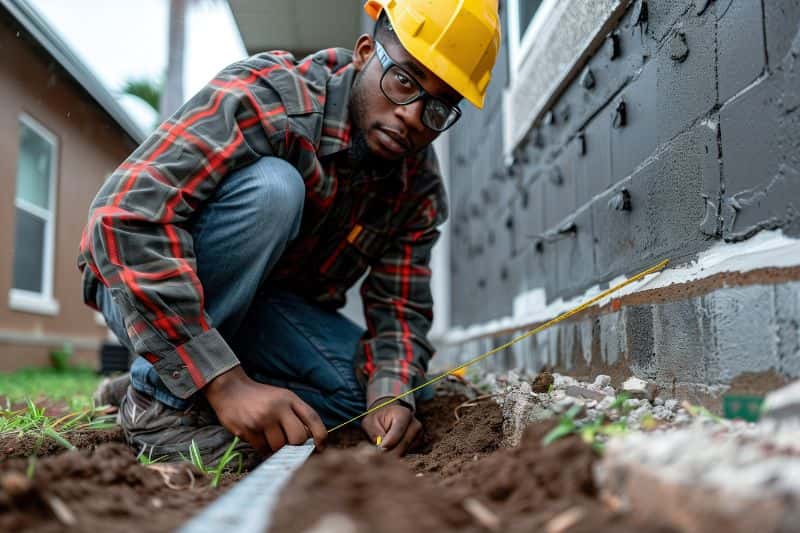
Several factors must also be considered in the foundation’s design and these must meet the legal requirements of your city.
An experienced foundation contractor is the best expert to recommend the ideal foundation for your project.
Whether you are building a basement, a detached garage, a patio, or a home addition, you need the services of a concrete foundation contractor.
Fill out the short online form on this page today to connect with the top 10 concrete foundation contractors in your area.
The Types of Foundations – The Pros and Cons
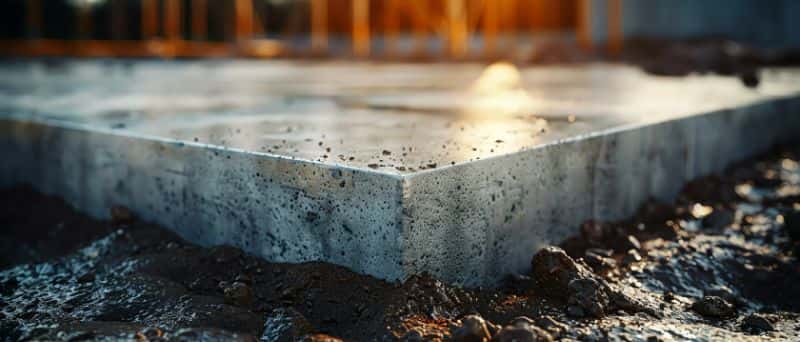
There are several types of foundations to choose from. The cost and function of each one are important to think about as well as the space needed below the main floor.
The type of soil, elevation, drainage, and local building codes are also critical criteria.
Know your options so you can choose the right one based on your needs.
CRAWL SPACE
Similar to a basement, a crawl space is off the ground by about 4 feet. Short walls rise from the ground with footings around the foundation’s perimeter as support.
BASEMENT
A basement is commonly used as a foundation because it brings more functionality and value to the home or building. It usually reflects the size of the home’s footprint.
You can have a full foundation under a part of the structure and a slab underneath the other areas such as the garage. Basement floors generally consist of a slab and a floor support. They increase the livable space of the home and can also be utilized as storage.
SLAB-ON-GRADE
A slab foundation is built of concrete with a thickness of 6-8 inches. The building rests on the slab. This type of foundation is often used on land with a high clay content in the soil or has insufficient drainage that could cause settling issues.
PIER TYPE
A pier foundation is built from cylindrical columns that support the structure and transfer heavy loads to firm ground. It stands a few feet above ground. Also referred to as post foundations, they are ideal for areas prone to flooding and are cheaper. You can also choose from various designs.
Speak to a concrete foundation contractor and get valuable advice to ensure the success of your construction.
Connect with professional contractors in our network, free of charge, using our short online form.
Factors to consider when Building a Foundation
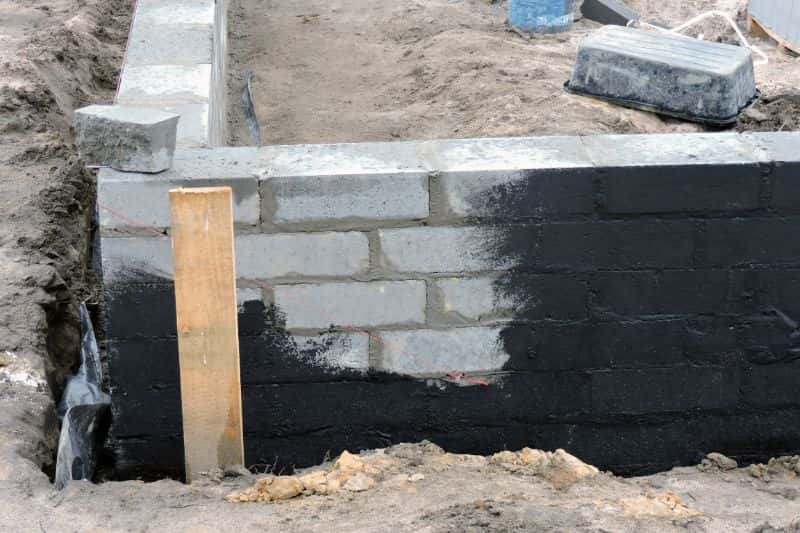
You will need to consider a few factors that influence the choice of foundations. Below are these factors that are essential in making your decision.
Thickness
Your foundation’s thickness must comply with the local building codes. Generally, it ranges from 8 to 10 inches.
Drainage
Damage to the foundation can be due to nature’s effects on concrete. Temperature changes, expansion, contraction, and gravity can result in shifts in the structure, and eventually, cracks. The structure must have good drainage to prevent cracks and other issues.
Soil
The soil must be analyzed prior to planning since many factors can influence the choice of foundation. The soil has an impact on settlement and based on the type of soil, it can happen fast or take many years.
These criteria must also be part of the soil analysis:
- The type and thickness of the ground and the topsoil
- The type, thickness, and depth of the sub-soil
- Groundwater level and chemicals present in the ground
- Bearing pressure allowed
- Hazards in the ground or other structures
Canada has building code laws but they may have variations from one city to the next. For instance, the Ontario building code has comprehensive, layered, and very detailed requirements pertaining to footings, columns, foundation walls, slabs, grade beams, etc.
With good planning and expert advice, you can have a solid foundation. Reliable concrete foundation contractors can simplify the process so that you can successfully build your project.
Would you like to find the top 10 foundation contractors in your area? It is easy to do- simply fill out the short form on this page to receive competitive offers from the best foundation contractors serving your area.
Foundation Repair Services: Why repair a foundation?
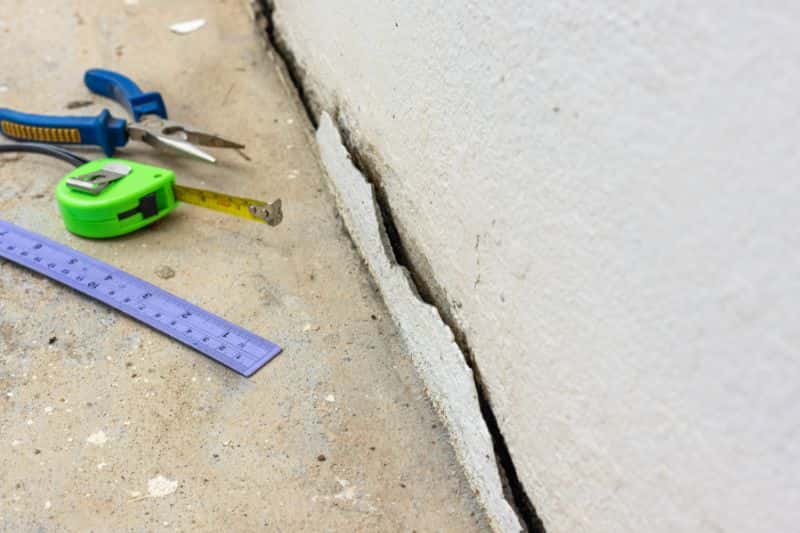
In case what you are looking for is to repair damaged foundation, you will still need to find concrete foundation contractors to help you.
Many homeowners discover that the foundation needs repair after a flood. Waterproofing professionals can assess the home to offer you the best solution.
At the sign of water leaks in the basement, such as on the floor or walls, remember that it could get worse over time. When heavy rains come, more water pressure around the walls of the home can allow water to come through the concrete. This will cause damage to the concrete as it absorbs water.
A complete home inspection for cracks in the walls can verify issues with the foundation walls. Other signs of failure include leaning chimneys, bowing walls, sagging floors, drywall cracks, etc.
Find the best concrete foundation repair contractors using our free and no-obligation form.
Most common foundation problems

Your home can only be good if the foundation is solid. At the slightest problem, promptly seek the help of a foundation contractor.
Check out these most common problems homeowners have with the foundation.
- Cracks: They appear in the interior walls of the home, the exterior brick veneer, or in the foundation itself.
- Broken chimneys: The masonry around a chimney will signal foundation problems by breaking in stair-steps along the mortar line
- Settling: One part of the house may appear to be sinking or floors could look uneven. Vertical cracks also appear in the joints.
- Foundation upheavals: A slab foundation is a plate of concrete over dirt. Moisture and plumbing defects underneath the slab and frost can cause damage when the foundation moves.
- Doors that don’t close: Interior and exterior doors could fail to close properly due to a moving foundation.
- Separation: Moving footings or foundation walls can cause separations between the kitchen counter and wall, or wide gaps around window frames or door frames
Why do Foundations Fail?
A foundation is not supposed to be moving. Foundations do fail because of movement:
- Freeze and thaw cycles;
- Impact such as from a vehicle, falling tree, etc.
- When the earth around a foundation drops or subsides;
- When underground water levels drop causing the soil to weaken.
When this happens, it is time to call in a concrete foundation contractor to resolve the issue and prevent further damage.
How much does foundation repair cost?
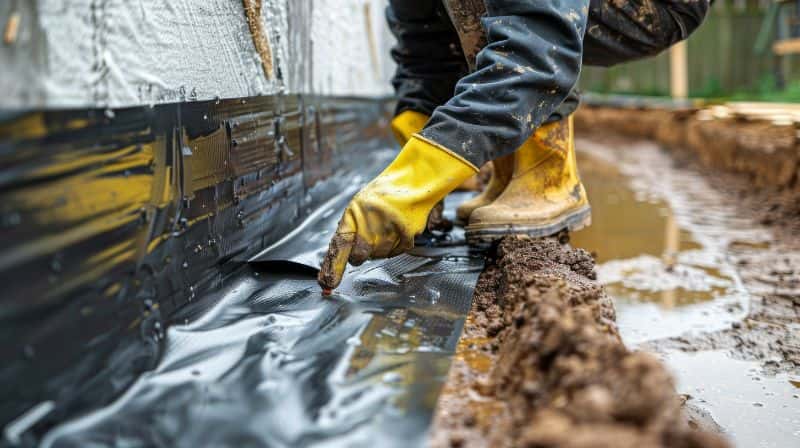
Cosmetic or simple foundation repairs can cost around $500++ but major foundation repairs can cost around $6,000.
Foundation repair costs vary depending on the complexity of the problem. Major issues may need hardware such as:
- Hydraulic piers to resolve settling (average cost is $10,00++);
- Slab-jacking pumps under the slab (cheaper than hydraulic piers)
Some repairs in the home can be done DIY but foundation repair should only be left to the capable hands of professionals.
To get accurate quotes, please fill out the short online form on this page and receive FREE and NO OBLIGATION offers from concrete foundation professionals near you!








